There are lines of masking tape all over the floor of the Factory Youth Zone and a couple of plates of pastries and cookies. It’s the first ever Big Meet.
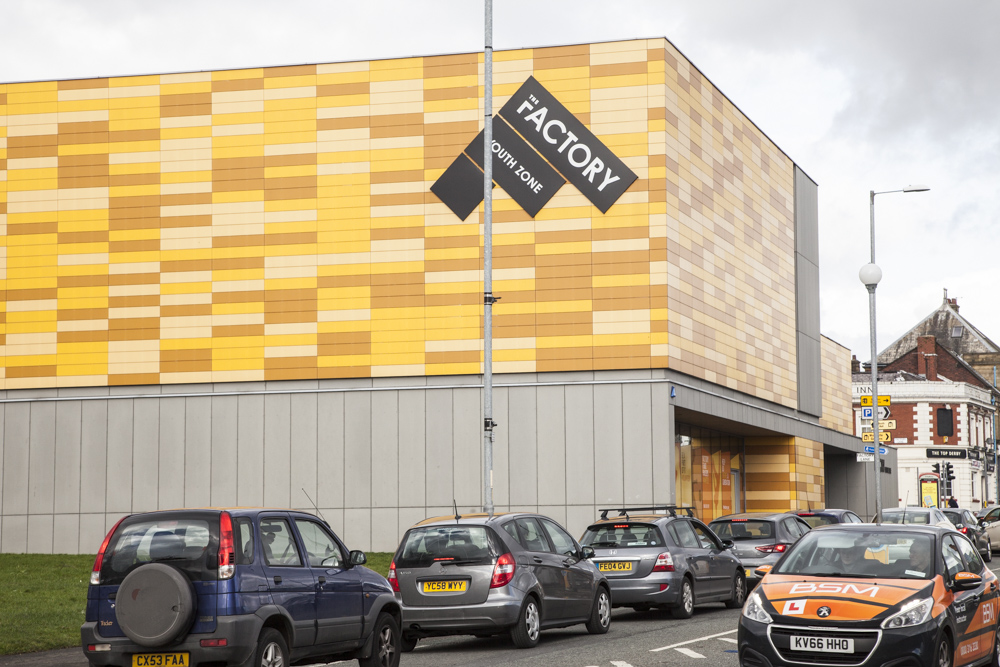 “Today is about getting more and more people to come together,” Stephen tells me. “I’ve just introduced a couple of people who knew of each other but had never met.”
“Today is about getting more and more people to come together,” Stephen tells me. “I’ve just introduced a couple of people who knew of each other but had never met.”
Stephen Chandler runs a hairdressing business and is secretary of Moston Lane Traders. He’s also part of Fourteen’s Local Reference Group (what’s this?)
“We’re all volunteers, aren’t we? These events are good at discovering ways of getting things done together,” says Stephen.
“By just connecting people?” I ask.
“Exactly.”
Once everyone has a brew and a pastry Anthony takes the mike and kicks things off. “My name is Anthony Bradley from a company called Everyday People,” he says.
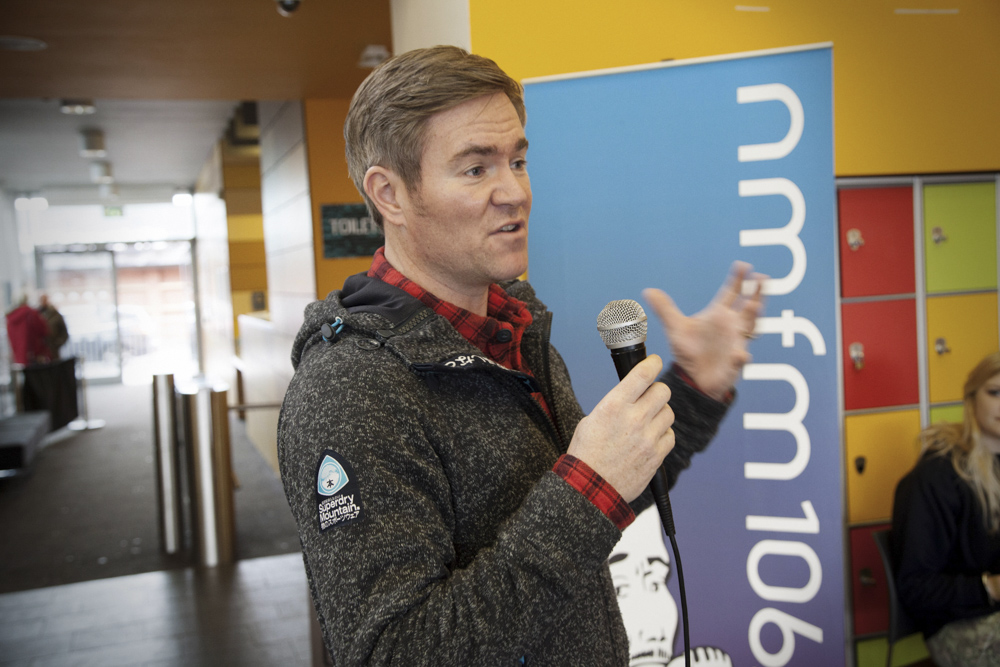 “With other organisations and individuals, we’ve been working with Forever Manchester on a project called Fourteen that aims to support community regeneration in Harpurhey and Moston.”
“With other organisations and individuals, we’ve been working with Forever Manchester on a project called Fourteen that aims to support community regeneration in Harpurhey and Moston.”
Anthony introduces others from the Local Reference Group. As well as Stephen, there’s Barbara from Creative Community; Louis from The Miners Arts Centre; Jane from Manchester Communication Academy and Pamela from the Factory Youth Zone.
“Let’s break the ice with a bit of a picture quiz. We do this as part of our reminiscence work with older people,” says Anthony as he passes around sheets of photos of cowboys. “We’ll split into teams of three.”
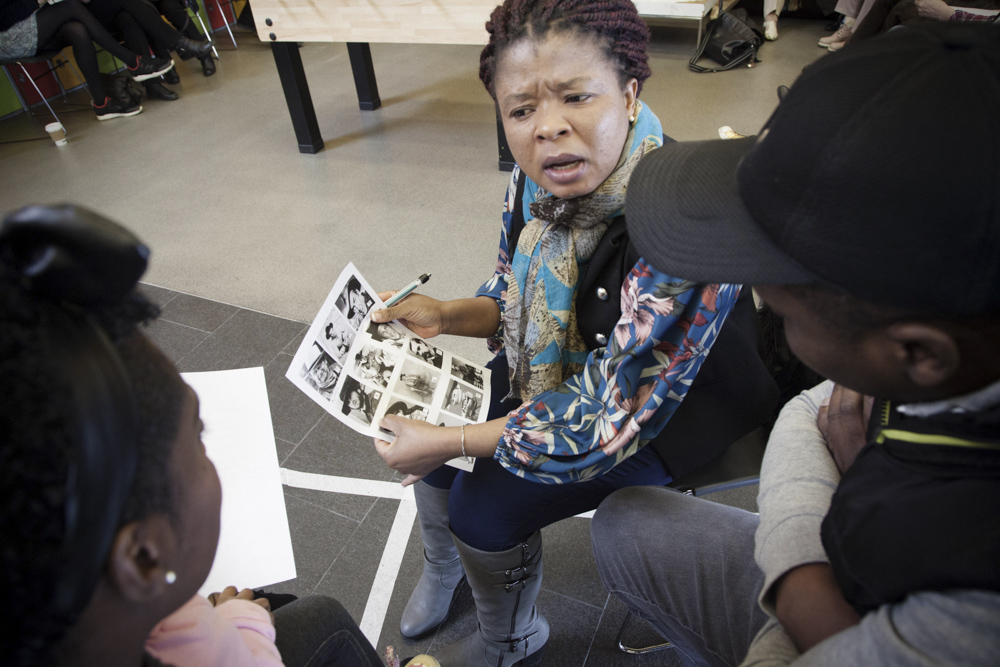 Whispered conferring follows. “That one’s James Stewart,” I say to one group who’s struggling.
Whispered conferring follows. “That one’s James Stewart,” I say to one group who’s struggling.
After another quiz about Coronation Street (Alf Roberts… Hilda Ogden… Gail Tilsley… Annie Walker), Graeme Urlwin from Forever Manchester gets everyone on their feet.
“You may have noticed this wonderful, not-to-scale masking tape map on the floor,” he says. “Have a look at the map and stand where your groups meets.”
With heads down, everyone navigates their way around four or five metres of Harpurhey and Moston. “You don’t have to be precise,” suggests Graeme, as two people try and stand in the same place.
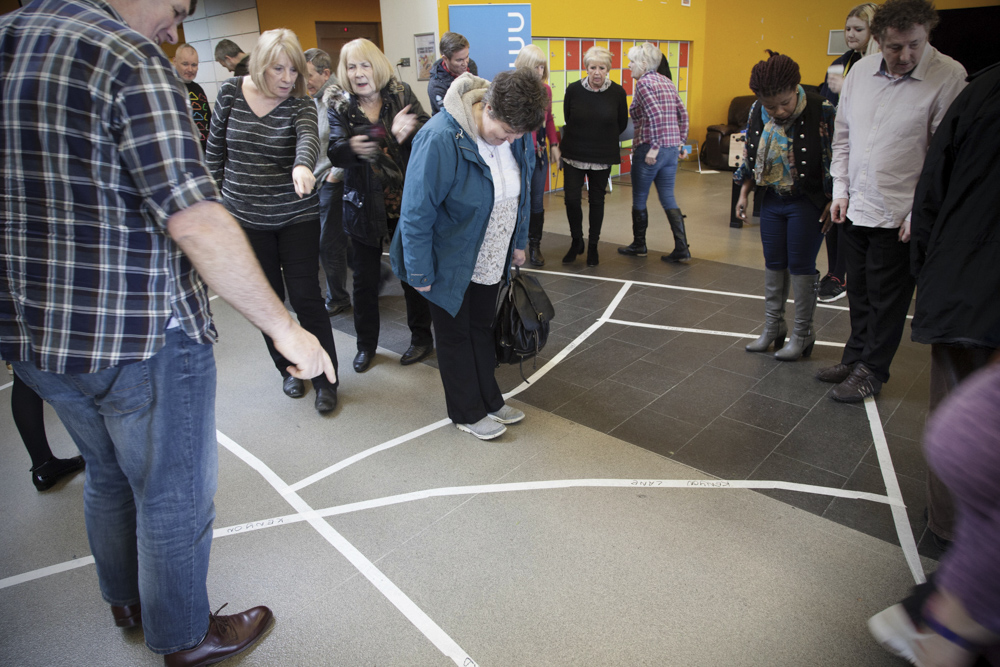 What a great idea. Everyone gets a sense of where they belong; how close others groups are to theirs and a chance to say hello to those they’ve never met.
What a great idea. Everyone gets a sense of where they belong; how close others groups are to theirs and a chance to say hello to those they’ve never met.
“Now, let’s take it in turns to tell us all, in 20 seconds or less, something about your group and what you do.”
The 20 second challenge defeats most people. There is just so much to say about the good work going on in this area. We hear from a cycling group, a community church, a domestic violence support project, a fitness group, a residents’ association, a creative arts project, a community centre and from the local amateur dramatic society. Brilliant.
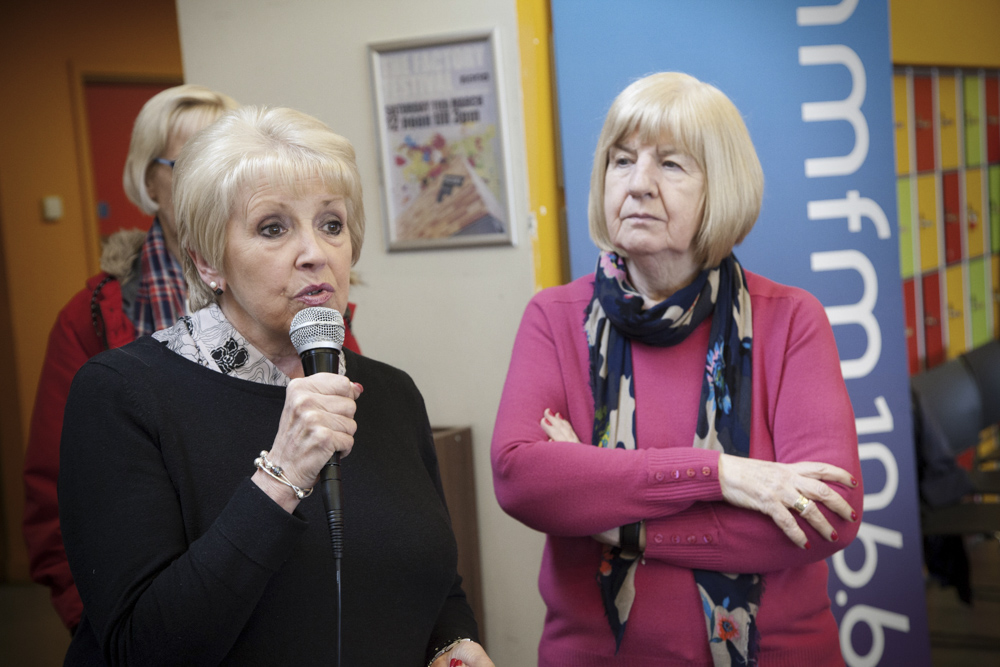 Next Graeme splits everyone off into groups around the room. For 20 minutes there are discussions about funding, networking and recruiting new people.
Next Graeme splits everyone off into groups around the room. For 20 minutes there are discussions about funding, networking and recruiting new people.
“These are recurring themes that come up again and again for community groups,” he explains to me. “This gives people the opportunity to share experiences and feedback ideas for improvement.”
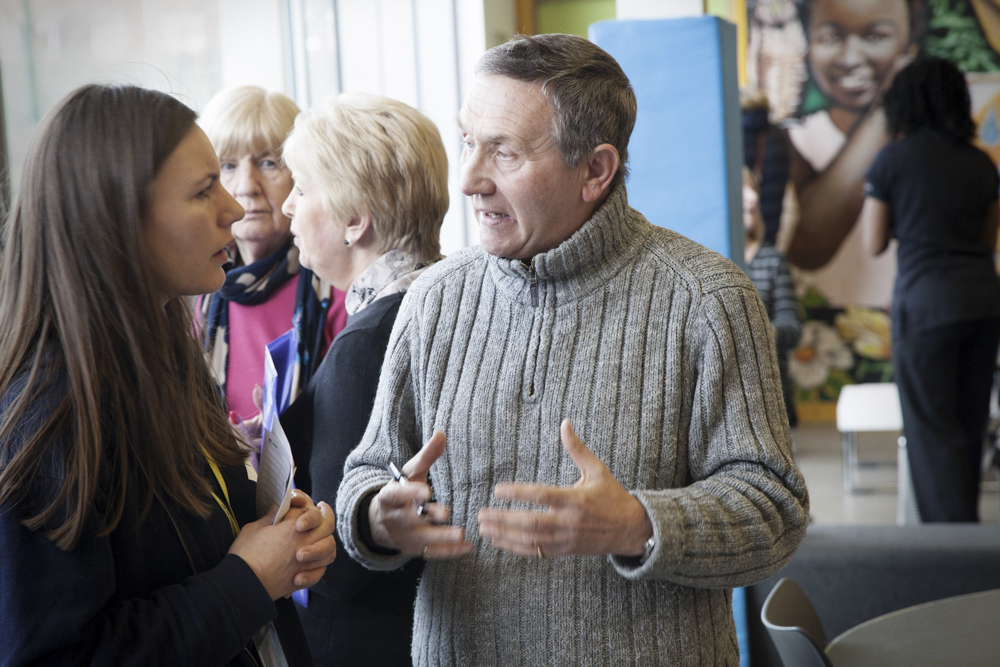
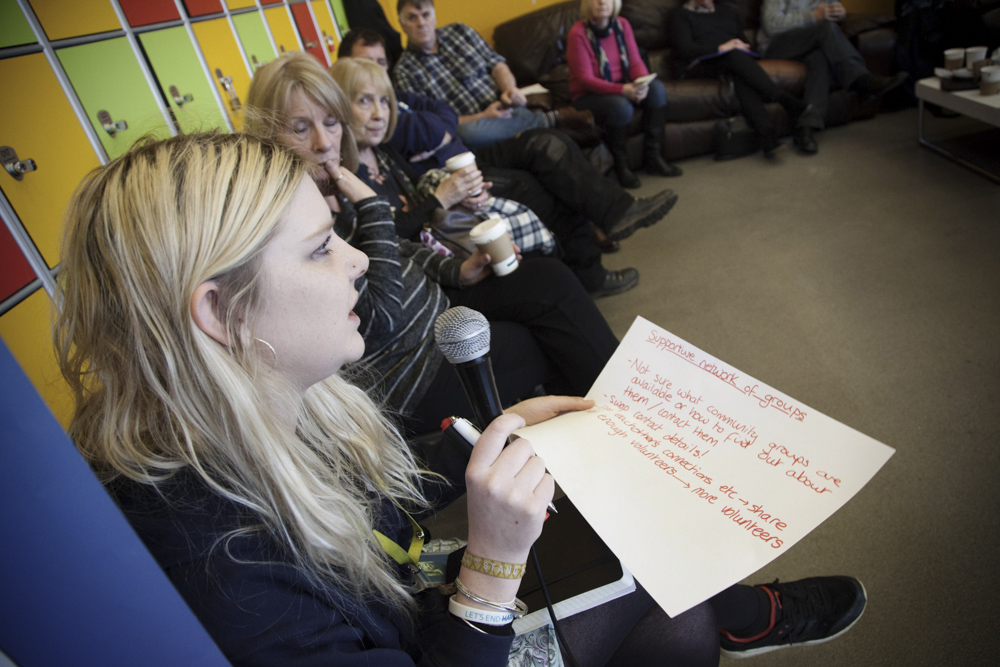 It’s been a productive couple of hours. Contact details have been shared as new connections are made.
It’s been a productive couple of hours. Contact details have been shared as new connections are made.
“We’ll have another one of these events in a couple of months,” says Forever Manchester’s Helen Capiter as she brings the event to a close. “Remember we have funds available now for Harpurhey and Moston and we’re planning some training events too, so do keep in touch.”
“How useful was that?” I ask Vanessa from North Manchester Amateur Operatic and Dramatic Society, as she puts on her coat.
“Oh, very useful in terms of meeting other people and hearing what’s going on. We’ve shared common problems and will hopefully find shared solutions. It’s always better that way, isn’t it?”
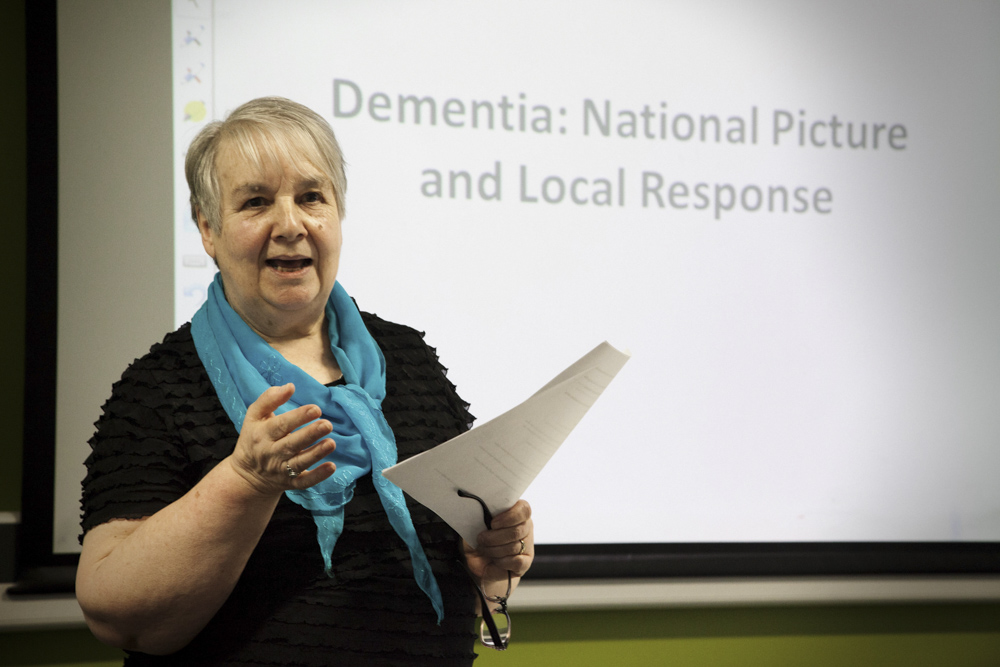 I don’t know much about Joan’s work. I thought coming to today’s Community Conference on Dementia would be a good way of finding out.
I don’t know much about Joan’s work. I thought coming to today’s Community Conference on Dementia would be a good way of finding out.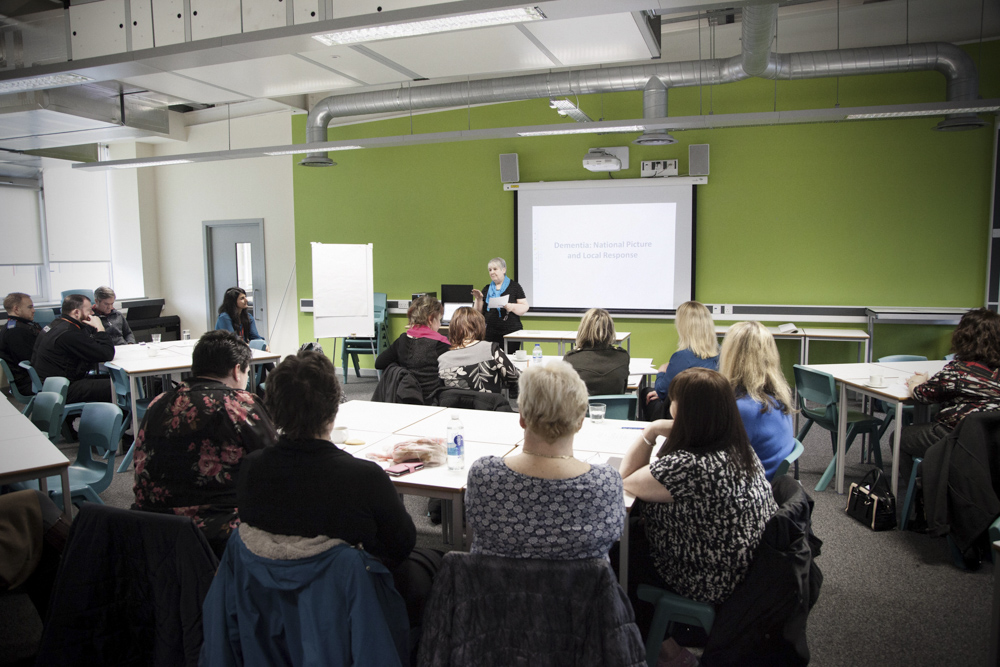 She next introduces Dr Ruth Thompson, a Manchester GP and commissioner of mental health services, who gives us an overview on dementia. “1 in 3 of the over-65s will have dementia,” she says, “and 1 in 3 of us will be involved with caring with someone living with dementia.”
She next introduces Dr Ruth Thompson, a Manchester GP and commissioner of mental health services, who gives us an overview on dementia. “1 in 3 of the over-65s will have dementia,” she says, “and 1 in 3 of us will be involved with caring with someone living with dementia.”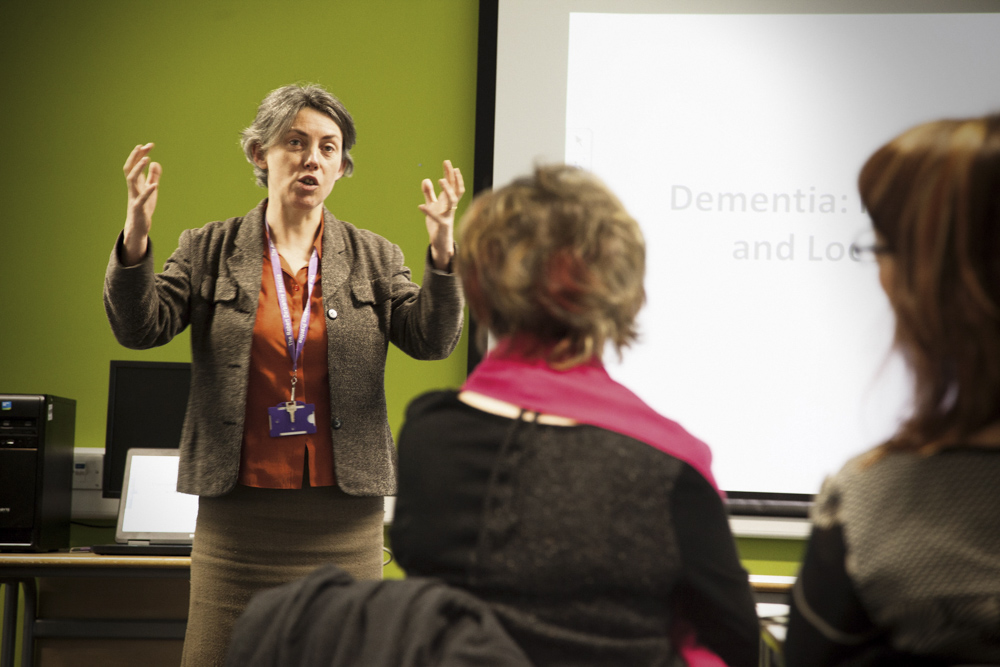 Ruth sets an upbeat tone and tells us that Manchester has some money for innovative ways of supporting dementia sufferers. This has got to be good news for people like Joan who can put it to good use.
Ruth sets an upbeat tone and tells us that Manchester has some money for innovative ways of supporting dementia sufferers. This has got to be good news for people like Joan who can put it to good use.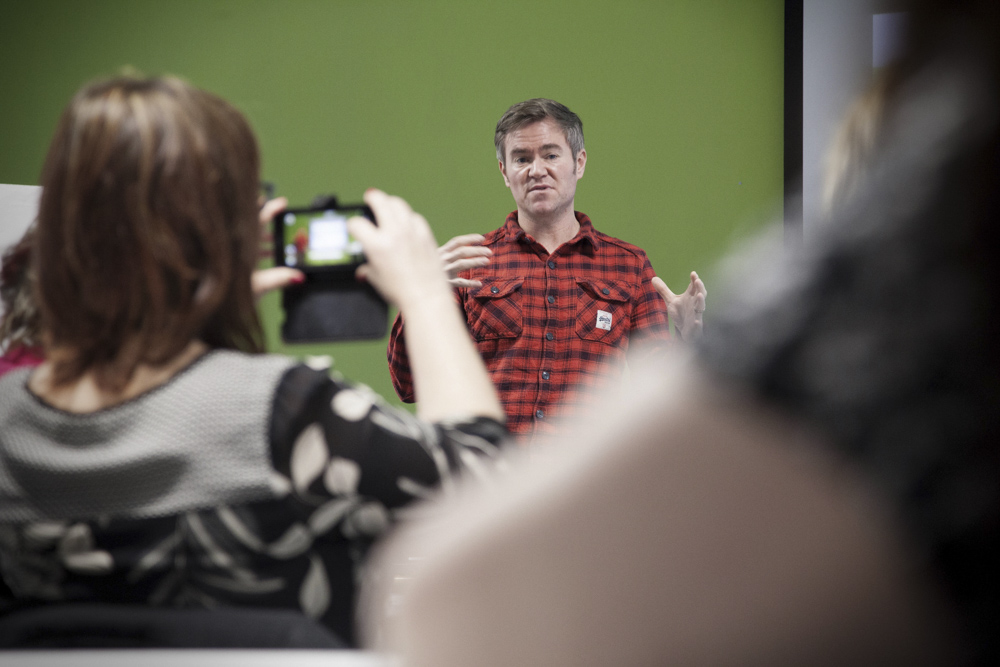 Anthony explains that music is a powerful tool in his work. “Yesterday we played songs from the musicals, from Evita, and a few of the ladies started crying.
Anthony explains that music is a powerful tool in his work. “Yesterday we played songs from the musicals, from Evita, and a few of the ladies started crying.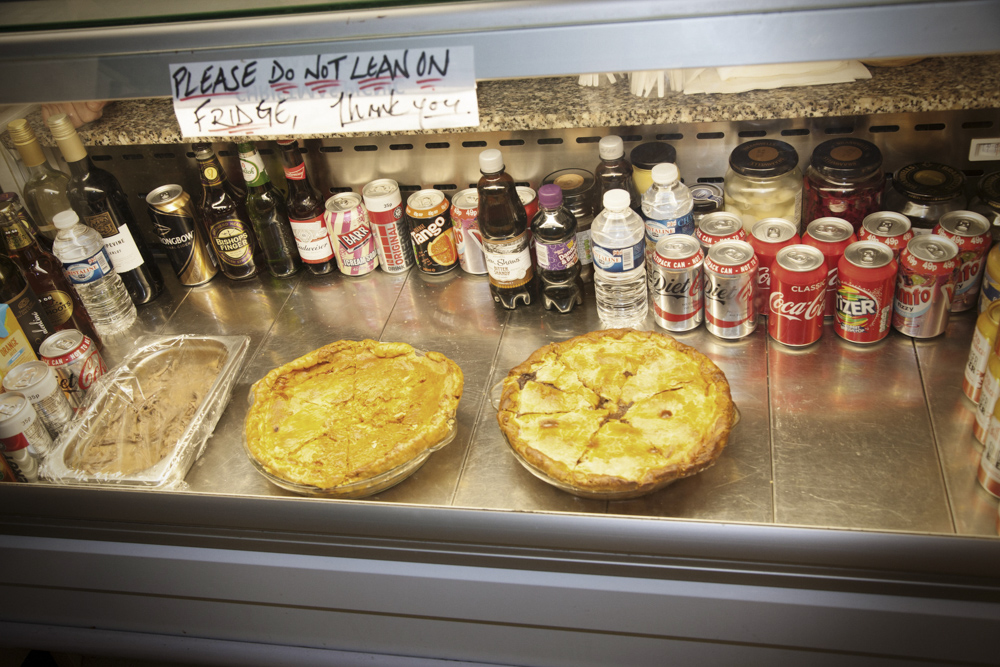 Louis has in fingers in so many pies, I’m finding it difficult to pin him down. “As well as running this place, you’re also an artist, aren’t you?”
Louis has in fingers in so many pies, I’m finding it difficult to pin him down. “As well as running this place, you’re also an artist, aren’t you?”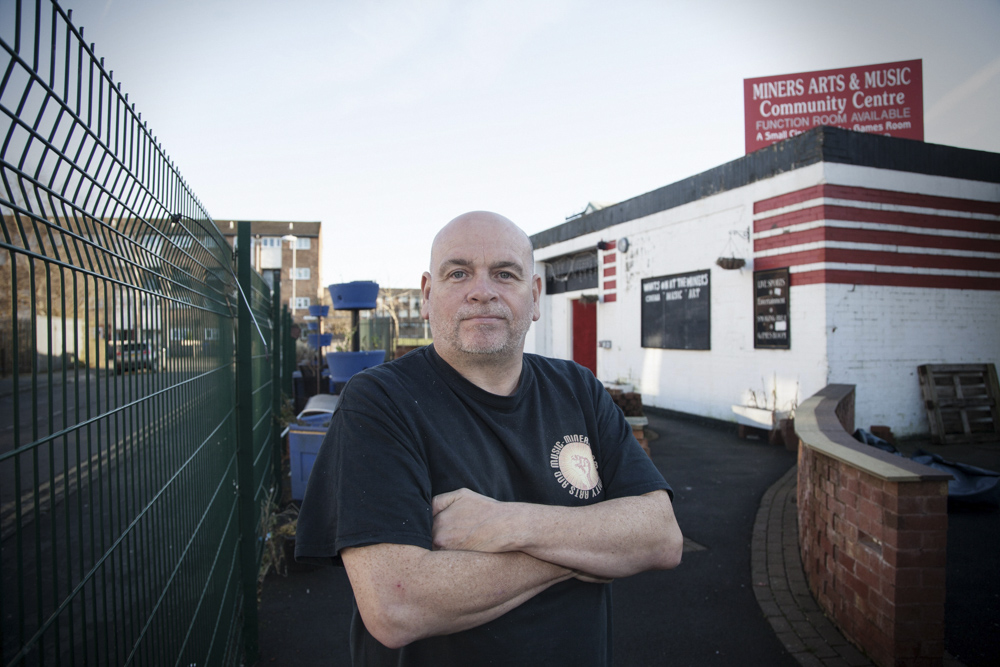 “I loved art as a kid. I started off at St Thomas More School in Miles Platting before I moved to the High School of Art in Cheetham Hill. That was great. It was much more creative than it was academic.
“I loved art as a kid. I started off at St Thomas More School in Miles Platting before I moved to the High School of Art in Cheetham Hill. That was great. It was much more creative than it was academic.